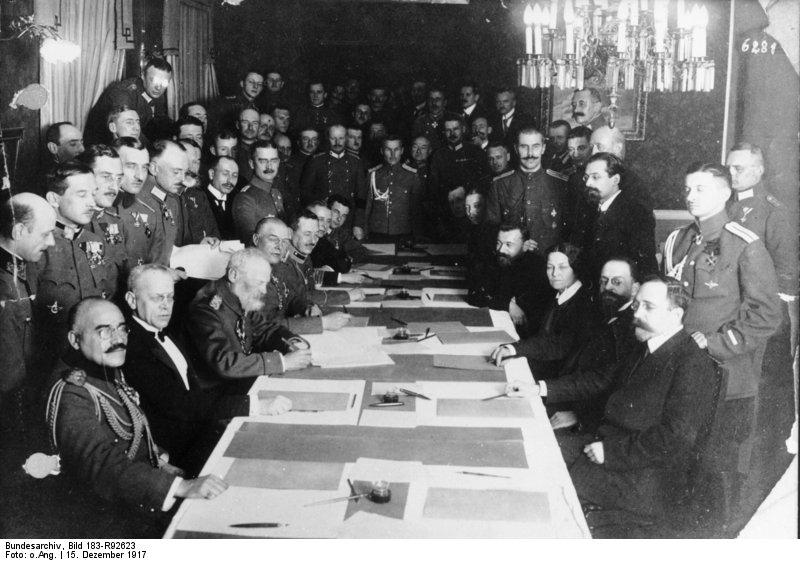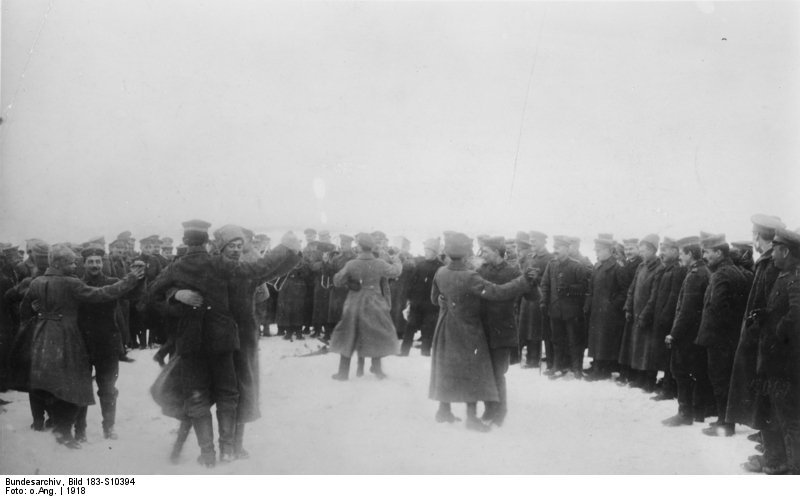In early 1917, the situation in Russia was turbulent. The people were hungry and tired of war. In March, Czar Nicolas II abdicated after days of protest. Eight months later, the communists staged a coup under the leadership of Vladimir Lenin. This event is known as the October Revolution. The communists were supported by part of the population because of their slogan "peace, land, and bread". The Provisional Government was overthrown.
The Russian Revolution: Armistice with Germany
Nov. 7, 1917 Petrograd (Saint Petersburg)
In order to fulfil their promise of peace, the communists had to stop fighting Germany. In December 1917, Lenin sent his closest collaborator, Leon Trotsky, to Brest-Litovsk (in modern-day Belarus) to negotiate with the Germans. On 3 March 1918, the German delegation agreed to a ceasefire in exchange for large areas of Russian territory. The Germans no longer had to fight on two fronts, but many German troops still stayed behind in the east because the situation there remained turbulent.

